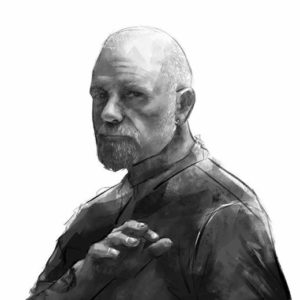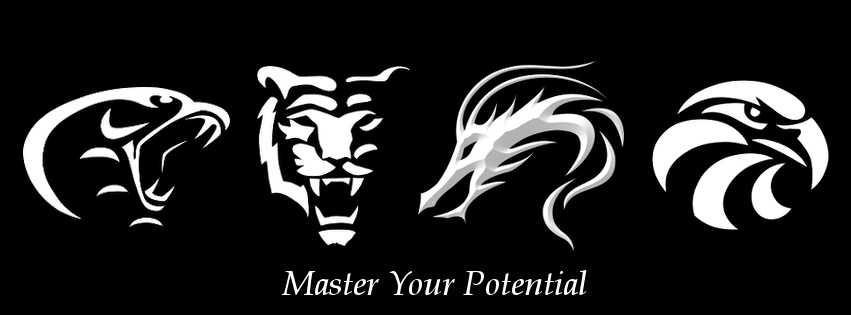We learn to create the world we live in.
The unconscious processes billions of bits of information per second and makes automatic judgements about which information to bring to our conscious attention; about 2000 bits of information, out of 400 billion.
It accesses filtered memories, knowledge and provides the insights of creative wisdom.
It runs the automatic behaviour. This includes both the learned functions that are controlled by the cerebellum and the automatic fantastic chemical factory, and its subsidiary support systems like breathing, which is our body.
Learned functions/behaviour include both the physical things that we do (without thinking) like walking, brushing our teeth, driving & Kung Fu, (once learned) and also the habitual thinking and the casual observations, which is also learned habitual behaviour. (this is a vital point) Yes even our casual observations, the way we perceive the world, how it looks to us, is an unconscious, learned habitual behaviour.
It short, it is responsible for everything we do that we do not give our conscious attention to.
While many functions are purely automatic from the start, a surprising number are learned first, then consigned to automatic (unconscious) once we have run the programme a few times. Some of these programmes, running in the background, we learned so long ago, we have forgotten that we ever learned them. Like walking, finding poo disgusting, getting anxious about social events or selecting which information to bring to our conscious attention.
Now the difference between what we unconsciously process and what is presented to our attention by this learned selection programme is huge; as in, we are consciously aware of 0.0000000005% of what we unconsciously take in.
This unconsciously taken in (but not brought to conscious awareness) data is a vast untapped world of information available to us if we can learn to re-programme this selection process. We can see in others when this selection programme is a little different to ours. Some people have programmed their selection protocol to notice cars, flowers, reasons to be jealous, opportunities to make money, threats or insults. After working as a head doorman for many years, I found that I could be in a vast crowd and spot a fight about to break out, or someone about to collapse and be there before those immediately next to the individuals had noticed anything amiss. Even after I finished working as security manager at Norwich Union I would drive past one of their buildings, or any other large office block, in the evening and without any deliberate attention, know that 7 of the windows on the 8th floor were open. Fortunately, after years of neglect, I no longer have these particular functions turned to high sensitivity. Though, I still notice security cameras and their neglected dead zones, open windows and climbable access routes. I still intuitively (unconscious-automatic) sense when someone is about to be violent and without any conscious thought, am aware of the best target and angle of strike to take someone down quickly. The world that we live in is the world we perceive. With so little of the data attended to, how can we think that we have an objective, realistic handle on the world? It might be an obvious thing to mention, but we will notice what we look out for. But the choice of what we look out for is mostly selected unconsciously, having previously learned this process. If we have practiced looking for opportunities to make money, then, through repetition, we consigned the process to an automatic function, then we will, apparently intuitively, notice such opportunities. We could just as easily have practiced looking for trouble in a crowd, open windows after dark, things to be grateful for or happy about, or indeed, reasons to get depressed, or feel victimised about. This is what is happening when people observe that what we focus on or give our attention to, we attract into our lives. Just consider getting a particular car. Google it, find out about it, then notice how often you will see one as you drive around; it’s almost miraculous, it must be God telling you to get one. With such a vast untapped universe of incoming data available to all of us, it will always be the case that what you focus your attention on, you will appear to attract into your life. Focus on health and you will notice opportunities to be healthier, you will notice the foods to avoid, opportunities for exercise etc. Focus on illness and you will appear to attract that. There is evidence that as we consider the prospect of getting a cold with dread and anticipation it acts as instructions for our unconsciously run immune system to adjust down and allow the cold virus in. The unconscious does not recognise negative instructions.
This system/law of attraction won’t make you healthier, happier or richer. It will however seem that you get presented with an unbelievable abundance of opportunities to get healthier, happier and richer. Our learned process of selecting the data we become consciously aware of is the method by which we are creating the world we perceive.
More on attracting the emotion we focus on. In addition to being an unconscious learned behaviour, there is also a very definite and measurable biological process that will attract more of the emotions that we focus on. Take our response to confrontation for example.
We can respond in a number of ways to a confrontational situation; we have a number of built-in (evolved) responses that work with varying degrees in different situation. In some situations (potentially aggressive dog pack) freezing might be the best option. In some situations (large dominant human) fawning, submissive gestures might be best. In some situations (spooked large herbivore) running till you find a tree to climb might work well. In some situations (great ape or other similar sized human) a frenzied, screaming attack can be the best response. In some situations (pinned down by huge carnivore) resigning oneself to die leads to a chemical cascade of euphoric and pain killing drugs. All of these responses are built into us, presumably because they have worked for us in our ancestral past. They are all possible outcomes of the inaccurately named “fight of flight” response.
As a young child of perhaps two or three years old, you will have responded to many situations in all of these ways, but you might have found one strategy more successful in getting the result you want. What works will become a conditioned response. We are not talking about conscious choices here, or at least mostly not. You might have discovered that being quiet, obedient, head down and trying to please an angry parent worked well to placate and fend off their anger. Or that shouting and hitting a sibling with a preferred toy caused them to back off. What works gets repeated, that’s how we learn. The successful strategy became a learned behaviour and was consigned to the cerebellum as an unconsciously operating, automatic, programme, along with walking and bowel control.
Unlike walking and bowel control however, your confrontation response had a chemical cocktail that flooded your body. (unless potty training was accompanied by excessive anxiety and/or praise, in which case, you might have other issues) The initial fight or flight response will have triggered the amygdala and a whole cascade of physiological processes that I have covered elsewhere. But, the specific direction that your response followed, i.e. fawning, freezing, resigning, fighting or fleeing will have trigger a secondary flood of emotional chemicals.
The hypothalamus produces neuropeptides that travel to every cell in the body. These are the chemical signature of every emotion you feel. Every cell has a surface membrane with receptors for these peptides. It turns out that each cell communicates with the brain and demands peptides to fill its receptors. If the cells get a good supply of any particular peptide, when they replicate themselves, (soft tissue cells will replicate within a few months) the next generation of cells will have more receptors for that peptide. So, to put it simply, if you are in the habit (learned behaviour) of responding with anger, every cell in your body will start to demand more anger. The cells communicate with the unconscious with a demand for more. Remember that your unconscious determines what you notice; what is unconsciously brought to your attention. Just like the car fanatic notices the DB9 as it passes on the motorway, the anger addict will notice every opportunity to get angry. And so you appear to attract into your life more of what you focus on, even when the choice of focus is unconscious. So happy people find it easier to be happy, depressive people find it easier to become depressed, loving, more easy to love and angry people, more easy to be angry.
Let me give you another reason why your reaction matters.
When you are calm and relaxed, your body is producing its own version of Valium. When you are happy your body is flooded with endorphins which also boost your immune system helping you fight viruses and bacteria. When you feel brave and invincible you produce a neuropeptide similar to interlukin-2 one of the most powerful chemicals used to fight cancer. Now when you are in a state of fear / dread you are producing cortisol and adrenaline, which while they have their uses of course, are believed to be involved in both the reduction of your immune system and in the development of cancer.
So when faced with a challenging situation, whether your automatic response is to be confident, excited and fired up with the expectation of success or whether your guts churn in dread at the prospect of failure, has a massive effect on you beyond simply whether you have a good day or a bad day. Remember you become addicted to the emotion you regularly feel.
Programming the unconscious.
This is a simple description but still essentially accurate. The conscious actions that we perform, the ones we have to concentrate on, are being controlled be the cerebrum, the higher, outer section of brain. When an action has been performed a number of times, our brain decides that it knows how to do this and doesn’t need to keep using up limited conscious attention on it, so consigns it to a lower, inner section of the brain, the cerebellum, that will perform this action (run this programme) unconsciously. Anyone who, after breaking their dominant hand, has tried to use the wrong hand to do any simple everyday task like brushing their teeth, has discovered that it requires a lot of concentration, because they don’t have this as an unconscious programme, so they are using their cerebrum.
Now while most of us are familiar with this process in the context of kinaesthetic (physical moving) activity, we often don’t realise that the learning process is essentially the same for thought processes. Once we have run through the same thought process enough times, it is consigned to the unconscious, automatic, processing centre, as described above.
Once you consider the unconscious functions of thought processes as learned behaviour that have been consigned to automatic operation through repetition, you are on the road to understanding how to re-programme the system.
Programming language.
Anyone who has written functions into a spread sheet or even written programmes for a computer will realise that you need a whole different language with a particular grammar and syntax. If you want to add up a list of takings over a year, see the total, then see the total after a percentage deduction, then see what that would be in an average month to set up a standing order into a tax savings account, writing that into the function box on a spread sheet won’t get you the result you need. You have to know the language of the machine to get the obedient but stupid machine to co-operate. Anyone with a dog will know that it isn’t just a matter of using the right words, but also the tone of voice, stress, intonation and body language that you have to get right. Also of course dogs learn associations and context and themselves develop conditioned responses.
Let me explain the basics of the language of the unconscious. Somewhere between computers and dogs.
Emotion needs to be sincere, not the words. Negatives are ignored. No time tenses. The unconscious doesn’t know the difference between real, remembered or imagined.
Emotions need to be sincere.
All programming of the unconscious is proportionate to the depth of emotion associated with the message. You could repeat the best phrased affirmation a thousand times but if it is empty of emotion, you are wasting your time. But if it is invested with a strong emotion, once will make it stick. Compare the warning on the side of a packet of fags, with the fact that once when I was 16 a girl I really wanted to get to know a lot better, said, rather casually, that there was something very sexy about the way I lit my roll up. Bang, embedded. Lighting a cigarette was instantly associated with the positive prospect of getting laid. Again, one very traumatic experience is often enough to instil a phobia or set up a trigger for a psychotic episode later in life. If I could show you a kung fu technique once, and if you could get actually attacked that day, and if you used that technique and won. You would remember that technique like it was your name.
So an affirmation that goes “I’d be so happy if in the future I had a blah” will be associated with a sincere emotion of lack, grief, need, not happiness. Even shortened to “in the future I will have Blah” will be understood as “I’m upset that I lack a blah” You’re still focussed on your need, or your sorrow. Ideally, in terms of the unconscious language, actually feeling happy that you have a blah, would be best, but if you can’t bring yourself to image this because it feels dishonest with yourself, try to re-phrase this as “I’m happy that I have a blah on the way”, picture it as in the post, you’ve ordered it and you’ve had notification that it has been dispatched, it’s yours, you have one, you are just waiting for it to be delivered. “I’m happy that I have a blah on its way” will work meaningfully so long as you are actually happy/excited.
If you actually do not want the thing, your unconscious will also be aware. If you want blah because you think you should, because others expect it of you, but really have a reservation, your emotion will not be sincere. It’s easy to have ambitions that are self-delusional lies. Often these are the result of parents, peer groups, propaganda or persuasive advertising. Always start with honesty.
Negatives.
Don’t tell a child with a glass filled to the brim not to spill it, tell them to be steady. Don’t tell someone with erectile dysfunction not to think of failure. “Don’t think of a blue elephant” will work as well as “do think of a blue elephant” If you concentrate on only escaping what you fear, you will be focused on it so much that your filter system will present it to you all the time. Don’t run from the beast, you will be running backwards; run to safety. Don’t run from poverty, focus on abundance. Don’t run from depression, focus on the good stuff. Don’t try to control anger, encourage tolerance and even indifference. If you avoid the monster by looking out for the monster, you’ll see it everywhere. You must have noticed that you’re unconscious will fill in any unclear details with what we anticipate seeing. Any pattern in half-light will become faces or figures; the dressing gown on the door that becomes an intruder. If you expect the guy in a leather jacket to be a thug, when a fight starts, you will see that he started it. If you expect your partner to be unfaithful, every look, wrong number, text will be signs of infidelity. Try saying, don’t be jealous, don’t get angry, don’t notice the pigeons, don’t notice your thong etc.
Remember that your unconscious is a willing, though dumb, servant. Tell it to look out for dangers and they will be everywhere. Tell it to look out for insults, threats, opportunities etc. and from that vast resource or un-noticed data your obedient unconscious will find them or fill in the gaps to create them.
Time.
This is an area that most people find difficult to get their heads round.
Let’s start with the past and most people will get it. When we are reminded of a past event, when we experience a memory, our unconscious will process the images as if they were current, because the experience of the memory is current. We can be scared, angry, upset, elated, grateful etc. etc. The more emotional the event, the better it is remembered. (Non-emotional events are hardly remembered at all. Fixing/reworking memories to have a different, or less emotional associated is do-able, but is another topic, I’ll give a hint at it only.) It would be fairly pointless to say to someone re-living a terror, “but it’s not happening now” they are experiencing the emotions associated with the memory.
“I had a terrible past. I was abused” is understood as “my life is terrible, I’m abused” Unless you are chronically physically injured by the abuse, then it is the upset caused by the abuse that affects you. If the memory upsets you, then the upset is present and it is irrelevant (in terms of the effect on your unconscious) that the actual abuse is over. This is why simply talking about a past event, can actually make the current trauma worse.
Start by visualising the child that was, from another’s stand point. From the view of the grown-up you, watching. Say, “that child is being abuse”. Be sympathetic, be angry. Now make the picture black and white, put it in an album and close the book. Now consider you. And state, “I am safe and strong. Confident and in control of my life.” Create an image of that to get excited about, feel the strength, the safety etc.
Future.
The unconscious does not get the future tense. “I will have a blah”, will be interpreted according to you sincere emotions, as either “I’m upset that I lack blah”, or as “I’m excited that blah is on its way”, but better by far to think “I have a blah in my path” so that it is in the present tense. You can get just as excited about future events as you can about past events as you can about current events. If you want to make changes in your future path, in the direction that your unconscious is leading you, then you need to get excited about the possibilities that are ahead. Does that mean you are guaranteed to get them? Well no. But the run up to Christmas when you know you have good things waiting for you is a lot nicer than the run up to root canal work. In both situations it is possible that you might die the night before and they might not happen, but one is still nicer to live in. Remember you can only live in today, so the journey has to be good.
Creating affirmations for yourself.
We all use affirmations all the time. But many of them are negative. “I just can’t lose weight, this is my natural shape” “You’ve got to be from the right background to really make it big” “Its all about having the right contacts, and I don’t have them” “Women don’t tend to like men like me” “I’m unlucky” “I always get the cold that’s going around” “I’m not confident about doing things like that” “ I’m only happy when I’ve got a drink in my hand” “I’m just someone who gets angry easily” “I tend to freeze in situations like that” “I can never think of the right thing to say” “God don’t mention maths, my brain goes numb at the thought”
Of course if you recognise any of those, you’ll know they aren’t affirmations, they’re merely a statement of the obvious.
Your affirmation needs to have a clear Visual, but with as much other sense input as possible, it must be Positive, it must be Present, and it must be Emotive.
Start simple. Chose a character or personality trait, you would like to increase. Don’t think in terms of one you don’t have; of course you have it, or you wouldn’t even be able to imagine it, to have an idea of what it would be like, to be able to want it more!
Picture a situation in which someone with that trait would react in a particular way. Now picture the situation, but with you reacting in that way. Now picture it again, but from behind your own yes. Play it over again, with more details. Now go into the future and look back at it. So if you want the confidence to perform a solo at the Albert Hall, picture the scene in the dressing room or the party afterwards. Now put the image of that scene just ahead of you on the path that you are walking.
Abundant confidence is on my path. My confidence is growing fast and it’s exciting to think of the person I’m becoming.
Character Traits.
Frivolous Confident Intuitive Organised
Encouraging Caring Tolerant Brave
Committed Considerate Steady Courageous
Constant Loving Unshakable Elegant
Compassionate Resourceful Passionate Optimistic
Solid Calm Joyful Relaxed
Creative Controlled Happy Entrepreneurial
Inspired Disciplined Fun-loving Generous
Quick thinking Carefree Light hearted Reliable
Witty Decisive Dedicated Imaginative
Humorous Persuasive Cheerful Insightful
Forceful Independent Proactive Resolute
Visual.
Positive.
Present.
Emotive.
I’m grateful that I already have ……. And am excited that I am becoming more …….
…….. is in my path, just ahead and I’m walking into an abundance of ……..
I am …….. and I’m becoming more ………
…………………………………. . . . . . . . .










